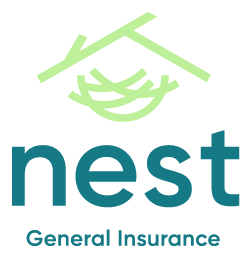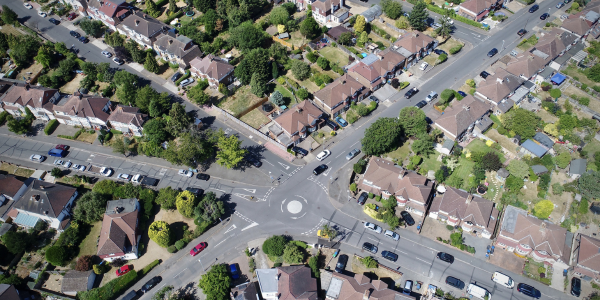Owning a holiday home can be a fantastic investment. Not only do you no longer need to pay for expensive hotels to visit during the summer, but you can also rent it out whilst you’re not staying there, making you some extra money.
However, it’s not always sunshine and rainbows. In fact, owning a holiday home can be stressful, as things can go wrong whilst you’re not there, leading to costly repairs and insurance claims.
We’ve already spoken about how to keep your holiday home secure, but what about other issues? In this article, we are going to run through the most common holiday home insurance claims and what you can do to help prevent them. Let’s get into it!
What is holiday home insurance?
While you may be tempted to buy standard home or landlord insurance for your holiday home, this is a risky idea, as you will not be covered for all of the issues that may occur. That is why you can purchase holiday home insurance, a specialised type of cover, specifically tailored to protect your villa abroad, idyllic country cottage or cabin in the forest against property damage, liability claims and loss of rental income.
What are the most common holiday home claims?
Without putting you off purchasing a holiday home, there are a number of different things that can go wrong. Luckily, however, that’s where holiday home insurance comes in. Looking at data from 2017 – 2019, insurance company Towergate pulled together the top 10 most common holiday home claims, how much they cost to fix and how long they took to resolve. Let’s take a look!
# 10 – Malicious damage
Luckily, the least common holiday home insurance claim on this list is malicious damage. Malicious damage covers any damage that was deliberately caused to a property by tenants or passersby. The average cost of fixing malicious damage was £3,530.47 during these three years, and on average, it took a whopping 133 days to resolve!
#9 – Lightning
Coming in at number 9 on the list is damage caused by lightning! Though this may sound surprising, lightning strikes the ground in the UK over 300,000 times a year, so the fact that it is ninth on the list shouldn’t come as a shock. The average cost of fixing this damage was just under £1500, and took around 25 days to resolve.
# 8 – Liability
The eighth most common holiday home insurance claim between 2017 and 2019 was liability. Liability claims cover holiday home owners against bodily injury or property damage that occurs on the premises during a guest’s stay. Liability claims in holiday homes can come from a number of different scenarios, including slips and falls or damage caused by pets belonging to the guests. Research suggests that liability claims cost £3,459.57 and 66 days to resolve.
#7 – Impact
Impact claims typically follow an incident in which the property was damaged by physical impact from an external force, such as a vehicle, falling trees, or objects that hit the property during a storm. Despite only being seventh on the list, impact claims are by far the most expensive and difficult to resolve – taking 148 days and costing £10,080.34 to resolve!
#6 – Flooding
Flooding was the sixth most common claimable incident during this time period. For insurance claim purposes, ‘flood damage’ refers to damage that is caused by events that occur outside of the home (like a river bursting its banks) and not flooding caused by an internal issue (like an overflowing bath or shower). Flood damage is expensive to repair, costing an average of almost £8,000 and 71 days to resolve.
#5 – Fire
Getting us into the top five is fire. In the year ending September 2022, there were 185,437 fires in the UK. Research suggests that between 2017 and 2019, house fires caused, on average, £8,142.03 worth of insurance claims and took 70 days to resolve.
#4 – Theft
It might surprise (or worry) you to know that the fourth most common insurance claim between 2017 and 2019 was theft! In 2023 in England and Wales, there were an average of 525 burglaries a day, which adds up to a house being burgled every 165 seconds! And the cost of these burglaries adds up too. In fact, between 2017 and 2019, the average cost to solve theft claims was £3655.22, and 56 days to resolve.
#3 – Accidental damage
Probably unsurprisingly, the third most common reason for holiday home insurance claims was accidental damage. Accidental damage is defined as sudden and unexpected damage to your property or contents by an outside force, such as spilling a drink and damaging the carpet. Luckily, though, accidental damage was the cheapest claim to fix, at an average of £1,305.03. These claims don’t take too long to resolve either – 43 days.
#2 – Storm
The Financial Ombudsman Service suggests that a storm usually ‘involves violent winds, usually accompanied by rain, hail or snow’, so there’s no wonder why, with the weather in the UK, that storm damage was the second most common holiday home insurance claim between 2017 and 2019. There were 23 named storms during this period in the UK. Storm claims cost an average of £3,907.26 and 72 days to resolve.
#1 – Escape of water
And claiming the top spot (pardon the pun) for the most common holiday home claims in 2017-2019 is escape of water. Escape of water is different from flooding, as it refers to water leaking from the mains supply and is caused by an internal factor, such as a domestic appliance, fixed water tank, fixed central-heating system or a water pipe. The most common cause of escape of water is burst pipes, which are common issues in the winter.
For example, in December 2022, burst pipes were the cause of 84% of escape of water claims, and in 2021, the average cost of weather-related burst pipe claims was £9,300
Between 2017 and 2019, the average cost to fix an escape of water claim was £7,596.23, and they took around 90 days to resolve.
How can you prevent some of these issues?
Now that you know some of the biggest causes of holiday home insurance claims, you probably want to know how to prevent them. While it’s impossible to completely eliminate the risks, there are several measures you can take to reduce the likelihood of encountering these problems.
One effective way to mitigate risks is through regular maintenance checks. After you’ve stayed in the property, and before and after each guest stay, inspect your holiday home to identify any potential issues. Check for signs of wear and tear, such as loose fittings, leaky pipes, or damaged electrical systems. Addressing these issues promptly can prevent them from escalating into more significant problems that could result in costly insurance claims.
Investing in security systems is another important step in protecting your holiday home. Install alarms, cameras, and motion sensors to deter unwanted visitors. Visible security measures can act as a deterrent and provide peace of mind, both for you and your guests.
Weatherproofing your holiday home is essential, especially if it’s in an area prone to extreme weather. Reinforce windows and doors to withstand high winds and heavy rain. Clear gutters and drains regularly to prevent water buildup and potential flooding. Consider investing in storm shutters or protective coverings for vulnerable areas of the property. By taking proactive measures to weatherproof your home, you can reduce the risk of storm damage and minimise the possibility of expensive insurance claims.
How Nest GI can help
At Nest GI, we offer a variety of insurance policies designed for non-standard properties, including holiday homes and short-term lettings.
Explore our products or contact us today to discuss your specific needs and discover how we can help you.








